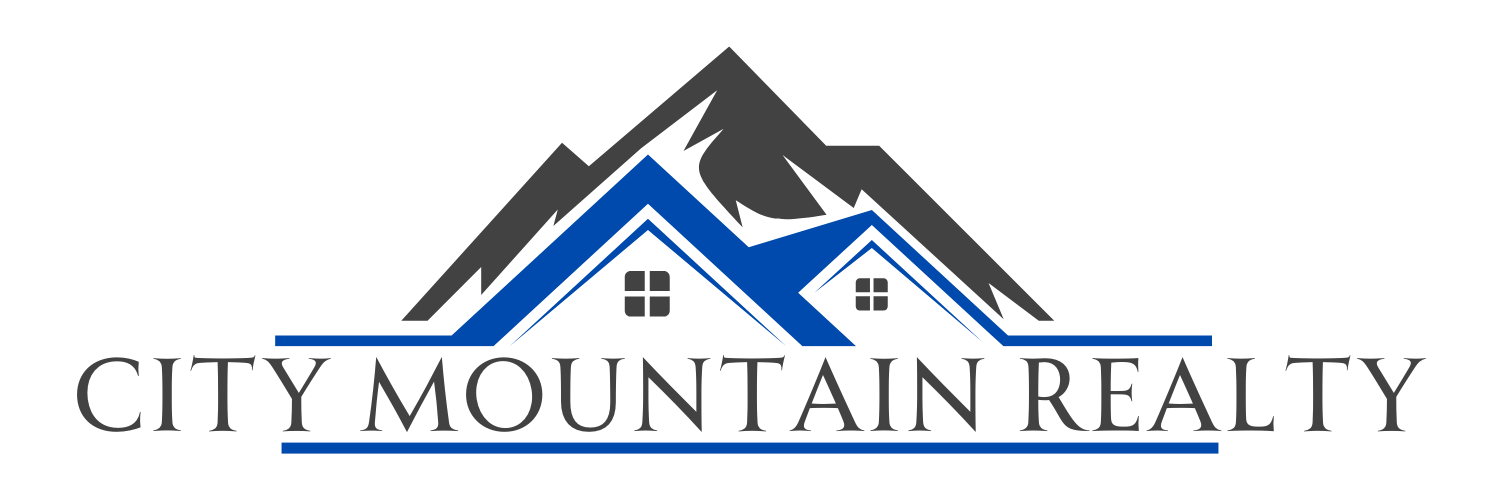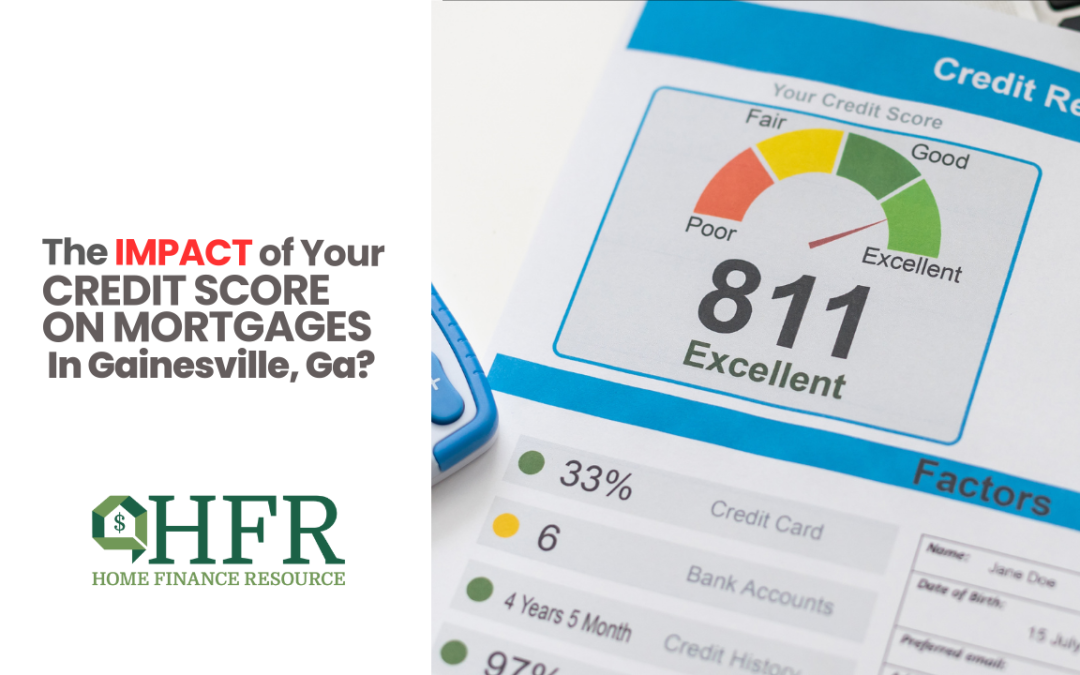The Impact of Your Credit Score on Mortgages Gainesville GA
Key Factors Explained
A solid credit score is crucial when applying for a mortgage in Gainesville, GA. Your credit score directly influences the interest rate you will receive, potentially saving or costing you thousands over the life of your loan.
Applicants with higher credit scores tend to qualify for better rates, making homeownership more affordable in the long run.
Credit scores range from 300 to 850 and are calculated based on your credit history, including factors like payment history, credit utilization, and the length of credit history.
Lenders use these scores to evaluate your creditworthiness, determining the likelihood that you’ll repay your mortgage on time. Those with scores above 760 typically secure the most favorable terms.
When planning to buy a home, it’s essential to understand the impact your credit score has on mortgage options.
This knowledge allows you to take proactive steps to improve your credit score if needed, ensuring you get the best possible mortgage rate and terms.
Key Takeaways
- A higher credit score leads to lower mortgage rates.
- Scores range from 300 to 850 and affect loan terms.
- Improving your credit score before applying can save money.
Understanding Credit Scores in Gainesville, GA
Credit scores in Gainesville, GA are essential for determining eligibility and interest rates for mortgages.
Knowing the components and ranges of credit scores can help potential homebuyers navigate the mortgage process more effectively.
Components of a Credit Score
A credit score is calculated using several factors:
- Payment History: Making on-time payments is crucial, as this factor typically holds the most weight in calculating a score.
- Credit Utilization: This measures the amount of credit used compared to the total available credit. Keeping utilization below 30% can positively impact the score.
- Length of Credit History: Longer credit histories are beneficial. This includes the age of the oldest account, the age of the newest account, and the average age of all accounts.
- New Credit: Frequent credit inquiries and new accounts may lower the score temporarily.
- Credit Mix: A variety of credit types, such as credit cards, mortgages, and auto loans, can improve the score.
Credit Score Ranges and Their Meaning
Credit scores, ranging from 300 to 850, are grouped into different categories, each influencing mortgage options:
| Range |
Rating |
Impact on Mortgages |
| 300 to 579 |
Poor |
High interest, limited options |
| 580 to 669 |
Fair |
More options, but higher interest |
| 670 to 739 |
Good |
Better terms and interest rates |
| 740 to 799 |
Very Good |
Lower interest rates, multiple options |
| 800 to 850 |
Exceptional |
Best rates and mortgage terms |
Understanding where one’s credit score falls can help set realistic expectations and prepare for the mortgage application process in Gainesville, GA.
How Credit Scores Affect Mortgage Rates
Credit scores play a crucial role in determining mortgage rates. Lenders rely on credit scores to assess the risk of lending money.
Higher credit scores generally indicate lower risk, which can lead to better mortgage rates.
For instance, a person with a 760-850 FICO score might secure a 30-year fixed mortgage with a 4.147% interest rate.
In contrast, someone with a lower score, say 620-639, might face rates around 5.5% or more.
Even a difference of 100 points in credit score can significantly impact the monthly mortgage payment.
Lower scores often lead to higher interest rates, which can add up to thousands of dollars over the life of a loan.
| Credit Score Range |
Approximate Interest Rate |
| 760-850 |
4.147% |
| 700-759 |
4.5% |
| 620-639 |
5.5% |
| Below 620 |
Often higher than 6% |
Lenders use credit scores to determine the borrower’s reliability. Hard inquiries, such as those made during a mortgage application, can temporarily lower a credit score.
Knowledge of how credit scores impact mortgage rates can empower potential homebuyers to improve their scores before applying.
Simple actions like paying bills on time, reducing debt, and checking credit report errors can help increase one’s credit score.
Understanding these variations in interest rates based on credit scores allows borrowers in Gainesville, GA, and elsewhere to make informed decisions.
Improving Your Credit Score Before Applying for a Mortgage
Effective credit score improvement strategies can significantly impact your mortgage eligibility and terms. Implementing timely measures and understanding the timeline for credit repair are critical steps.
Effective Strategies for Score Improvement
Make Payments on Time: Consistently paying all bills by their due dates is crucial. Payment history constitutes 35% of your credit score. Even one late payment can have a negative impact that lingers for years.
Reduce Debt: Lowering your debt levels can improve your debt-to-income ratio and boost your credit score. Aim to keep credit card balances well below the credit limit, ideally under 30%.
Secured Credit Cards: For individuals with low or no credit, securing a credit card that reports payments to credit bureaus can help build a positive payment history. These cards require a cash deposit, which serves as collateral.
Monitor Credit Reports: Regularly checking your credit reports for errors and disputing inaccuracies can prevent unnecessary damage to your score. Use free annual credit reports to stay updated.
Timeline for Credit Repair
Immediate Actions (1-3 Months): Start by addressing any late payments and reducing credit card balances. Secured credit cards can be opened quickly to establish credit activity.
Short-term Improvements (3-6 Months): Continue making on-time payments and reducing overall debt. Regularly monitor credit reports and dispute any errors.
Settling outstanding collections or debts can also benefit your score during this period.
Long-term Strategy (6-12 Months and Beyond):
Maintain a history of timely payments and low credit utilization. Keep older credit accounts open to benefit from the length of credit history.
Avoid applying for new credit frequently, as multiple inquiries can lower your score.
By following these timelines and strategies, potential homeowners can improve their credit score effectively and secure better mortgage terms in Gainesville, GA.
Navigating the Mortgage Application Process
Understanding how to navigate the mortgage application process in Gainesville, GA, involves careful attention to documentation requirements and knowledge of local mortgage lenders.
Documentation and Credit Score Verification
Applicants need to provide various documents. This includes proof of income, such as recent pay stubs, W-2 forms, or tax returns, and proof of assets, like bank statements and investment account summaries.
Lenders will also review the applicant’s credit score. A higher credit score can mean better loan terms.
Applicants should check their credit reports for errors before applying. Disputing inaccuracies with credit bureaus can potentially improve the score.
Regular monitoring helps maintain good standing.
Gainesville’s Mortgage Lenders and Your Options
Gainesville offers several mortgage lenders, each with unique offerings. Some of the prominent lenders include banks, credit unions, and specialized mortgage companies.
Applicants can choose from fixed-rate or adjustable-rate mortgages. Fixed-rate mortgages have consistent payments, while adjustable-rate mortgages may offer lower initial rates.
It’s crucial to compare terms and conditions among lenders to find the best fit. Working with a local lender may provide additional benefits, like better customer service and familiarity with the regional market.
Frequently Asked Questions
Understanding how credit scores impact mortgages in Gainesville, GA, can help homebuyers navigate the process more effectively.
Below are some specific inquiries and their answers to offer clarity around this topic.
How does a credit score influence mortgage rates in Gainesville, GA?
Credit scores directly affect the interest rates offered by lenders. Higher scores typically secure lower interest rates, which can save thousands over the life of a loan.
Conversely, lower scores might lead to higher rates, increasing overall costs.
What credit score is typically required to purchase a house in Gainesville, GA?
For most conventional loans, a minimum credit score of 620 is needed. FHA loans have looser requirements, usually accepting scores as low as 580 with a 3.5% down payment.
Scores below this threshold may still qualify if a larger down payment is made.
Why might a credit score decrease after purchasing a property?
A credit score might drop initially after purchasing due to the new debt incurred. The significant increase in debt affects the credit utilization ratio.
Over time, as mortgage payments are made consistently, the credit score tends to recover and improve.
How long after paying off a mortgage will the credit report reflect the change?
Once a mortgage is paid off, it usually takes one to two months for the credit report to reflect this change.
Lenders report updates to credit bureaus monthly, so the timeline can vary slightly.
Does acquiring a mortgage impact one’s credit score immediately?
Yes, acquiring a mortgage can have an immediate impact. Initially, there might be a small dip due to the new account and increased debt.
However, this effect is usually temporary if payments are made on time.
What are the long-term effects of a mortgage on a credit score?
In the long term, a mortgage can positively impact a credit score. Regular, timely payments build a strong payment history, which is a key factor in credit scoring.
Over time, the consistent record of payments can significantly boost overall creditworthiness.





